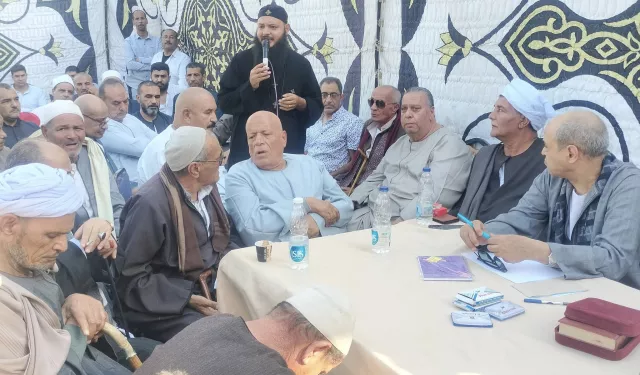The Egyptian Initiative for Personal Rights criticized the sectarian tension in Minya’s Bani Mazar district after a Christian family was fined one million Egyptian pounds and forced to leave the village of Nazlet Gelf following an arbitration ruling last week. The Ministry of Interior, meanwhile, downplayed the incident as a dispute between two families with no sectarian dimension.
The decision came after a customary arbitration council heard claims that a Muslim girl had been kidnapped by the brother of her Christian friend. Two arbitrators told Al Manassa the council ordered the young man’s immediate expulsion, gave his family five years to leave, and imposed a fine of one million pounds.
Two days earlier, a video circulated online showing homes under attack and stones thrown at Christian properties. The violence reportedly escalated, with some property on agricultural land belonging to Christian residents set on fire.
In a statement Sunday, EIPR condemned the authorities’ handling of the sectarian incidents in the village, and said that the sessions in their current form undermine the principles of citizenship, equality, and the rule of law, particularly given the involvement of security and government officials who, according to the rights group, oversaw the session and dictated some of its prearranged decisions to the arbitration committee.
Such measures deepen sectarian divides and violate citizens fundamental constitutional rights, according to EIPR. It cited Article 95, which limits punishment to those convicted of crimes, and Article 63, which prohibits forced displacement in all its forms.
EIPR argued that the ruling served to appease an “angry majority” rather than apply the law, and urged the government to stop legitimizing arbitration sessions that expel citizens because of their religion.
It also called on state institutions to stop endorsing the decisions of local arbitration committees that violate the constitution, and to protect citizens from attacks simply because they share the same religion as one of the parties involved in a dispute.
Resolving sectarian conflicts, it said, must begin with the prompt and impartial application of constitutional and legal provisions, while safeguarding the safety and rights of women, who often face retaliation and often become targets in sectarian disputes.
Later Sunday, the Interior Ministry issued a statement describing the incident as a quarrel between two families after a romantic relationship between a girl and a young man. The ministry said some parties had “given the incident a sectarian character,” adding that both families later reconciled through a traditional arbitration process that did not interfere with legal proceedings.
Authorities said the case had been referred to the Public Prosecution, which ordered the young man detained pending investigation.
In a follow-up statement, the ministry said two people were arrested for “inciting” the incident on social media.
